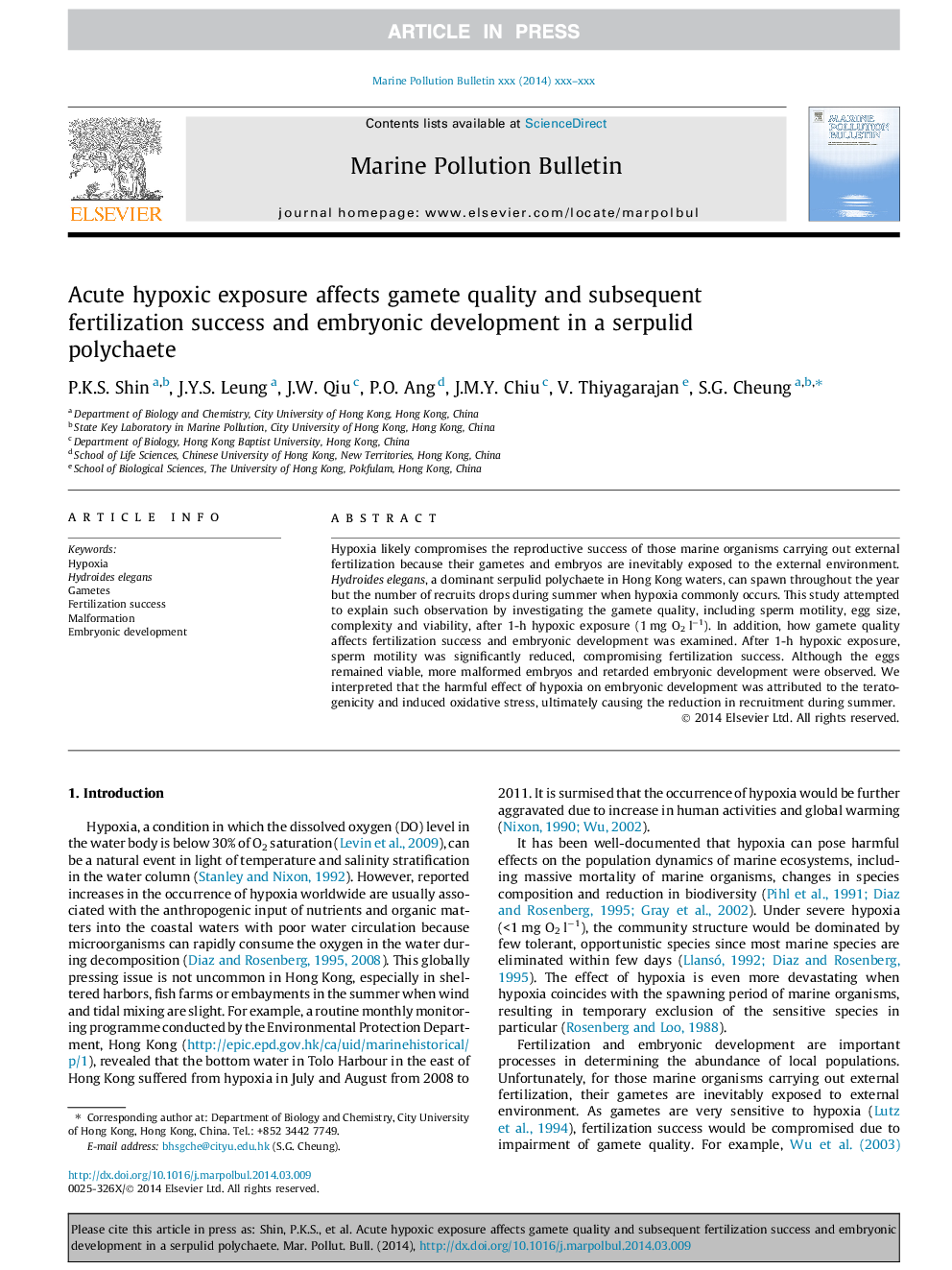| Article ID | Journal | Published Year | Pages | File Type |
|---|---|---|---|---|
| 6358463 | Marine Pollution Bulletin | 2014 | 7 Pages |
Abstract
Hypoxia likely compromises the reproductive success of those marine organisms carrying out external fertilization because their gametes and embryos are inevitably exposed to the external environment. Hydroides elegans, a dominant serpulid polychaete in Hong Kong waters, can spawn throughout the year but the number of recruits drops during summer when hypoxia commonly occurs. This study attempted to explain such observation by investigating the gamete quality, including sperm motility, egg size, complexity and viability, after 1-h hypoxic exposure (1Â mg O2Â lâ1). In addition, how gamete quality affects fertilization success and embryonic development was examined. After 1-h hypoxic exposure, sperm motility was significantly reduced, compromising fertilization success. Although the eggs remained viable, more malformed embryos and retarded embryonic development were observed. We interpreted that the harmful effect of hypoxia on embryonic development was attributed to the teratogenicity and induced oxidative stress, ultimately causing the reduction in recruitment during summer.
Related Topics
Physical Sciences and Engineering
Earth and Planetary Sciences
Oceanography
Authors
P.K.S. Shin, J.Y.S. Leung, J.W. Qiu, P.O. Ang, J.M.Y. Chiu, V. Thiyagarajan, S.G. Cheung,
